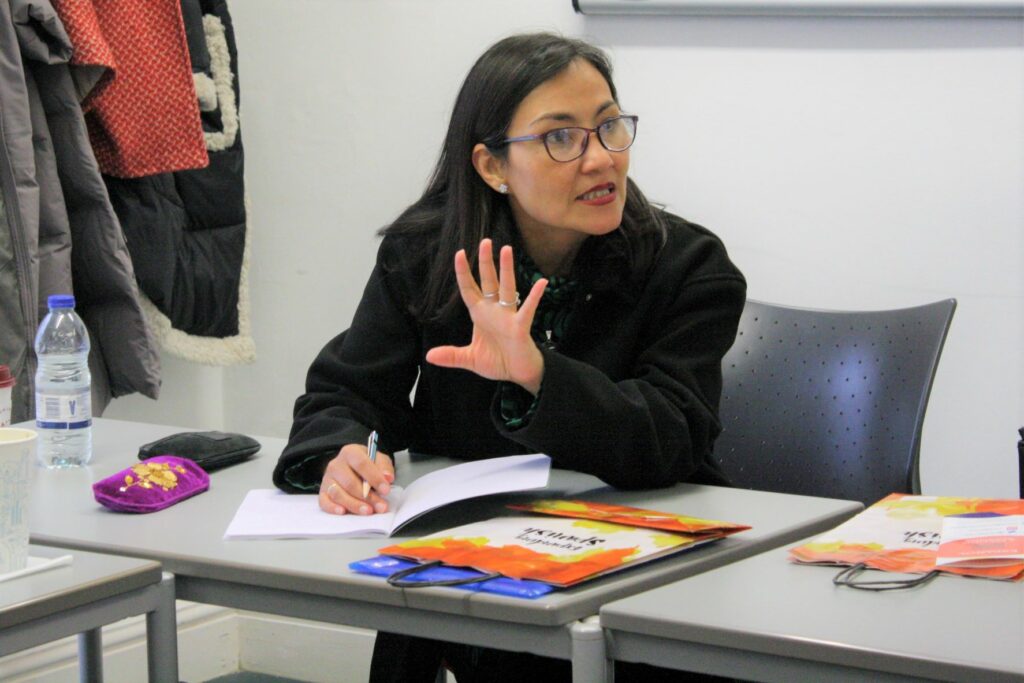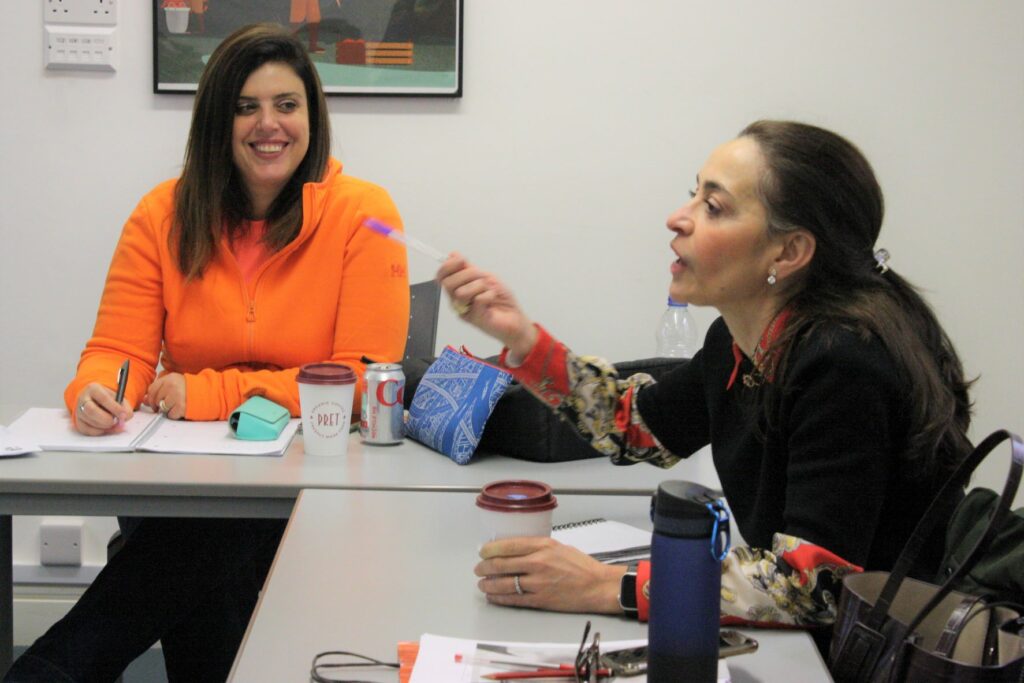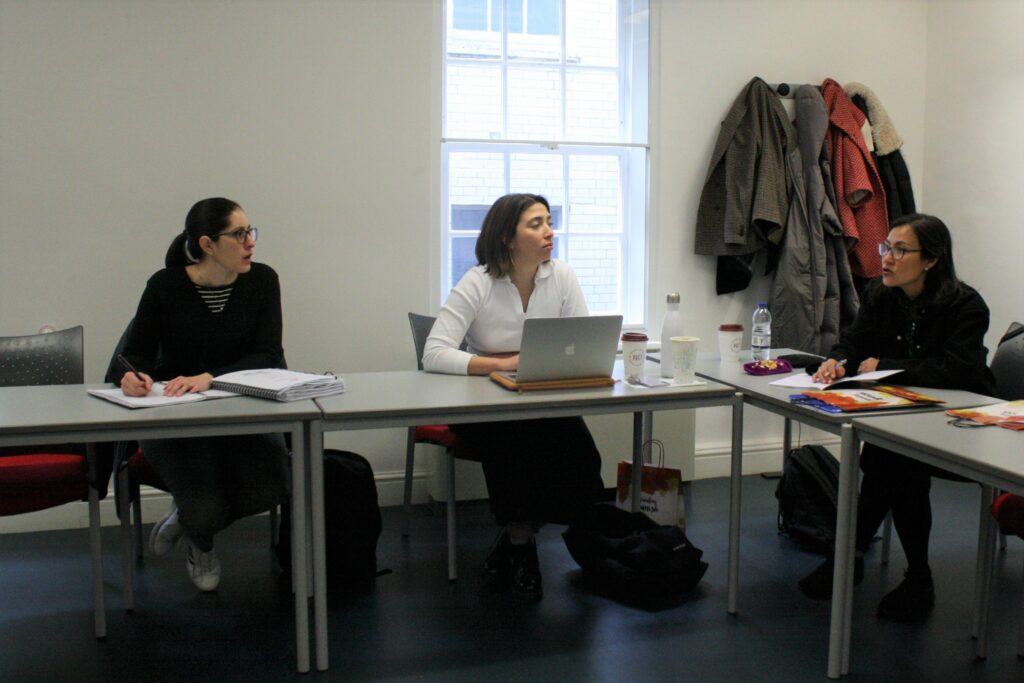Interest in Instituto Cervantes Teaching Accreditation Diploma (DADIC) continues to grow given increasing demand for learning Spanish in the United Kingdom

Instituto Cervantes London is training future teachers of Spanish as a foreign language through its preparation course for the Instituto Cervantes Teaching Accreditation Diploma (DADIC-A, autonomous level) within the context of an increasing demand for learning Spanish in the United Kingdom. A new group of students is about to complete the second module during the course’s fourth edition.
“The preparation course for the DADIC- A enables participants to teach Spanish communicatively, efficiently and professionally”, says Antonio Vañó Aymat, head of studies at Instituto Cervantes London. “Training new Spanish teachers in the United Kingdom is important to us. Spanish is one of the most studied languages in the country, and the demand for experienced qualified teachers of this language continues to grow”, adds Vañó Aymat.
“Training new teachers allows Instituto Cervantes to play a part in how Spanish is taught in the UK. We ensure high-quality teaching through a unique student-centred, action-oriented methodology. It combines theory and practice and is based on action, interaction and reflection to broaden future teachers’ skills and equip them with the tools needed to analyse and develop their professional practices”, the head of studies explains.
The course is aimed at those with no previous experience or training in teaching Spanish as a foreign language. A pleasantly surprising aspect of the fourth edition is participants’ level of education. They hold degrees in various fields: some have completed diplomas, Master’s degrees and PhDs in Education, Communications and Hispanic Studies, while others come from what are usually considered unrelated backgrounds such as engineering and business management.
“The level of education held shows that the high-quality professional training offered by Instituto Cervantes London attracts exceptional students seeking to improve their skills in teaching Spanish as a foreign language”, emphasises Vañó Aymat. Moreover, participants’ great interest and will to learn reflects “their commitment to teaching the language”. Students are from all over the Spanish-speaking world, which enriches and diversifies their learning experience.

Increasing demand for learning Spanish in the United Kingdom
Venezuelan student Gitanjali Wolfermann, who has been living in London for just over five years, says, “I was pleasantly surprised by the increasing demand for learning Spanish in the UK, and especially by the desire to learn about Latin American culture. Here in London, I am far from home, but not my culture, which is inherently linked to my mother tongue, the language I think and feel in.”
In Wolfermann’s case, sharing her love for her language and culture is what inspired her to teach Spanish. “I chose the course because of its extensive curriculum and highly qualified, experienced teachers. I was also drawn to the combination of theory and practice”, she said.
Wolfermann also highlights that she and her fellow participants have been exposed to various levels, from beginners’ through to advanced. “This is not available everywhere, as a lot of the courses are online”, she notes. Another factor that persuaded her was the qualification achieved, which is certified by Instituto Cervantes.
“Many people think that being a native speaker of a language automatically means you can teach it. This is far from true. A teacher needs many tools and techniques to help students progress. It is no good teaching them isolated grammar rules or making them repeat meaningless phrases; it helps to build connections to better their understanding of the language and its rich culture”, Wolfermann highlights.
A very valuable experience
Jesica Paz, who is from Chile, wishes to become a Spanish teacher to work with students from diverse backgrounds, cultures and age groups. She wants to share her language and culture with them while also learning about theirs. She says, “I wanted to take the course to acquire new teaching tools and models that will help me improve the planning, development and analysis of the classes I give.”
In Paz’s view, taking the preparation course for the DADIC-A has been a “very valuable experience on both a personal and professional level”, as she has learnt new things that leave her better prepared for the future inside and outside of the classroom.
Paz highlighted that what she liked most about the course is that it has given her “new tools that will lead to greater professional development”, and she is certain that the qualification will open doors to the possibility of teaching Spanish anywhere in the world.

Taking the DADIC was the best decision
Student Milagrosa Villalobos, who is from Seville and has been living in London since 2011, began her journey as a Spanish teacher during the pandemic, when native speakers were needed to help Spanish A Level students prepare for their exams.
“After a few years helping young people learn and improve their Spanish, I decided it was time to formally train. Taking the DADIC was the best decision I could have made. The excellent course instructors have guided me in the right direction on my journey as a Spanish teacher”, explains Villalobos, adding that the course was “great from the start, in relation to both the learning experience and the instructors leading the course”.
A practical course to help develop teaching skills
Instituto Cervantes London has been offering this introductory course in teaching Spanish to adults since October 2019. It is aimed at those with no previous experience or training, and is divided into two modules, which focus on the early development of teaching skills and preparing for the DADIC-A.
Upon completion, teachers no longer require supervision. They are able to make decisions independently in relation to managing the language teaching, learning and assessment process.
Equally, they are well prepared to apply techniques and models learnt during the course and take risks with new approaches in the classroom. They are also able to adapt their teaching style to other contexts and will be able to critically review and improve their performance.
More information about the Preparation course for the DADIC-A


